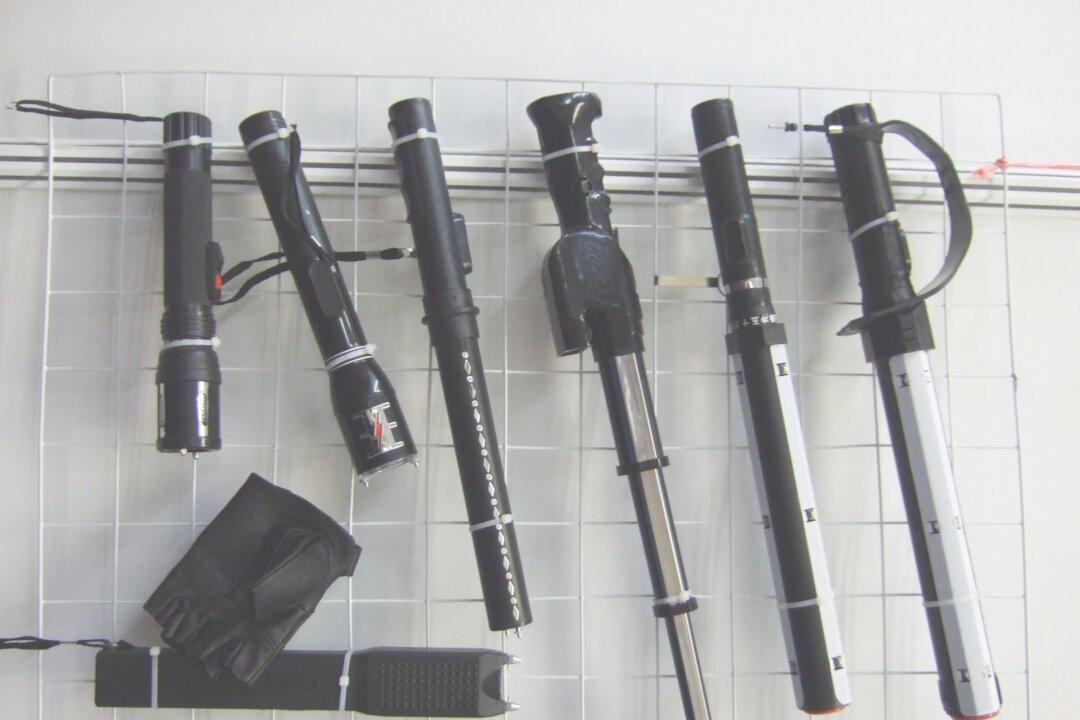Uyghur leaders outside China are claiming that a massacre with casualties in the thousands took place in western-China’s Xinjiang Province, the home for the Muslim minority.
The incident occurred on July 28 at the end of the Muslim festival of Ramadan and is said to have been a reprisal for Uyghur violence against Chinese authorities.
Chinese authorities said they shot dead knife and axe-wielding Uyghurs on a rampage. Official reports of the death toll jumped from 59 to almost 100 days after the incident.
Uyghur sources said that the communist authorities may have bombed three villages and sent SWAT teams to kill the survivors, according to the unverified reports.
On Aug. 5, Rebiya Kadeer, the exiled Uyghur leader and president of the World Uyghur Congress, said, “We have evidence in hand that at least 2,000 Uyghurs in the neighborhood of Elishku Township have been killed by Chinese security forces on the first day [of the incident] and they ‘cleaned up’ the dead bodies on the second and third day during a curfew that was imposed,” in an interview with Radio Free Asia. The slaughter was said to have taken place on July 28.
She said that evidence includes “recorded voice messages from the people in the neighborhood and written testimonies on exactly what had taken place in Elishku township of Yarkand County during this massacre.”
“We’re hearing different stories from different people on the ground,” said Alim Seytoff, president of Uyghur American Association, in a telephone interview.
“We know the Chinese security forces used extrajudicial force in the attacking and killing … they’re also downplaying the numbers. We’re hearing the number is several times, much, much higher than the number reported by the Chinese government. Obviously we cannot send someone there to do a body count.”
He added, “The Chinese government basically committed, most likely, a massacre in the area.”
Internet, text messages, and cellphone usage has been effectively shut down in the area. “We’re thinking the Chinese government is doing a cleaning house there, making sure nothing comes out from what they did, and at the same time blame the Uyghurs.”
A local source, who is a business woman, told RFA in a separate report “Police, thugs, and civilians who died in total are over a thousand.”
“This organization [that is, the attackers] had bombs and guns. They exploded wherever they wanted. They stabbed people with large knives. Some of them are from local Xinjiang, and some are from outside of the country. … Our businesses are severely impacted.”
“Our place here is like Iraq now,” she said, “the Internet is on and off. My cellphone now can’t even text.”
She also indicated that the killed Uygurs were several hundreds. “The authorities wouldn’t report the full death toll, because once the death toll exceeds a certain number, the U.N. peacekeepers would come here.”
Ramadan Crackdown
Throughout Ramadan, the month-long religious holiday sacred to Xinjiang’s Muslim Uyghurs, an increasingly harsh clamp down by authorities has brought a prohibition on fasting and other religious practices, along with restrictions on dress, travel and gatherings.
Meant to curb violence in Xinjiang, the draconian restrictions, prompted by a May attack in a market in Urumqi, which left 43 dead, have served to increase Uyghur resistance to China’s rule, say critics.
During Ramadan, students and government employees were prohibited from fasting. Some students said they were force fed to break their fasts.
Authorities have forbidden children under 18 years old from entering mosques and have made it illegal to teach them religion. Rights groups accuse the Chinese regime of attempting to erase the region’s Islamic identity each year during Ramadan.
Residents see an increase in armed street patrols, and police have detained hundreds of suspects and arrested 40 “terrorist groups” says Radio Free Asia.
Regional courts in the Kashgar area held open trials on June 30, the day after the beginning of Ramadan, when 113 detainees were sentenced. Four were given life terms. In a secret trial 17 more were sentenced later in the month for protesting the shooting death of teenager.
“Recently, 17 detainees—including my two brothers and other relatives—were taken to a ‘closed court’ in Kelpin, authorities convicted them of crimes against the state,” a woman told RFA.
Assassinations
On July 30 a state-appointed Uyghur Imam, head of the largest mosque in China, was stabbed to death in Kashgar.
A local teacher told RFA that the Imam was disliked by many Uyghurs because he backed the regime in the Urumqi riots, and was a frequent critic of Uyghur resistance to Chinese rule. Xinhua said that police killed two suspects and apprehended a third suspected in the death of the Imam.
Another assassination took the life of a Uyghur Communist Party official’s wife on July 19, in apparent revenge for a police raid during a mosque prayer session the previous day, in which the official took part. The official was severely wounded.
Six Han Chinese farmers were stabbed to death on July 9, and police killed a suspected Uyghur assailant, while three other suspects were captured. The Chinese had purchased large plots of land in the area and were considered relatively wealthy, said RFA.
The Communist authorities have instituted stiff bus and airlines travel restrictions in Xinjiang, banning bus passengers from carrying cigarette lighters, and yogurt containers, with even tighter restrictions in force in Urumqi. The authorities apparently fear the yogurt containers may be used for homemade bombs.




